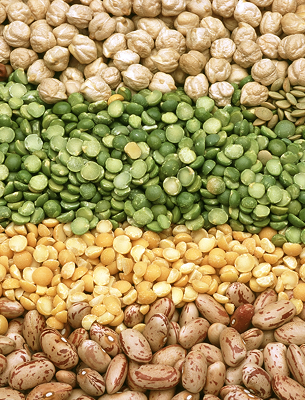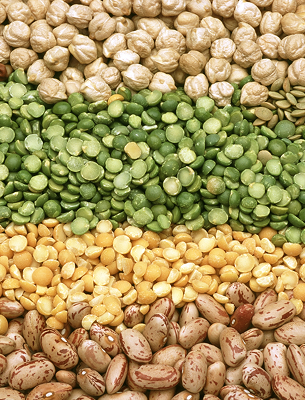 Nicotinamide (NAD+)
Nicotinamide (NAD+)
Nicotinamide (NAM) is the most powerful NAD+ precursor to recycle NAD. It keeps energy metabolism, DNA repair, and longevity-related enzymes running. Customers get more NAD benefit with Nicotinamide than direct oral NAD, because NAD is too large to absorb and breaks down into precursors. Dosage also matters. We dose to support consistent NAD recycling.
Research suggests that nicotinamide and its influence on NAD+ levels may have positive effects on longevity. NAD+ is involved in various processes, such as sirtuin activation and PARP (poly ADP-ribose polymerase) function, both of which are associated with cellular repair and protection against age-related decline.
NAD+ is responsible for facilitating a whole host of cellular functions such as metabolic pathways, DNA repair, chromatin remodeling, cellular senescence and immune cell function. NAD+ is also serves a role in ATP synthesis to produce energy for cells. Aging is associated with decreased NAD+ levels which amplify aging related diseases and complications.
Benefits:
Increases ATP production: ATP is a cell’s main energy currency. By supporting ATP synthesis, nicotinamide helps maintain cellular energy levels, which is important for various cellular processes and overall health.
DNA repair and maintenance: Nicotinamide is involved in DNA repair mechanisms, specifically in the activity of enzymes called poly(ADP-ribose) polymerases (PARPs). These enzymes are responsible for repairing DNA damage, which can occur due to factors like oxidative stress. By promoting DNA repair, nicotinamide may help maintain genomic stability and delay the aging process.
Anti-inflammatory properties: Nicotinamide exhibits anti-inflammatory effects by inhibiting certain pro-inflammatory signaling pathways. By modulating inflammation, nicotinamide may help reduce the risk of age-related diseases and promote healthy aging.
Mitochondrial function: Mitochondria are the powerhouses of the cell, responsible for energy production and various cellular processes. Nicotinamide is involved in maintaining mitochondrial function, including the regulation of energy metabolism and the prevention of mitochondrial dysfunction. By supporting mitochondrial health, nicotinamide may contribute to longevity.
NAD+ and sirtuin activation: NAD+ is an essential coenzyme for sirtuin activity. Sirtuins rely on NAD+ as a substrate for their enzymatic function. Nicotinamide has been shown to activate sirtuins, a type of protein involved in regulating cellular processes related to aging and longevity including the aging and death of cells and their resistance to stress. Sirtuins are also involved in regulating gene expression, DNA repair, and metabolic pathways. By activating sirtuins, nicotinamide may help promote cellular health and longevity.
Nicotinamide Effects on 12 Hallmarks of Aging:
Telomere Attrition:
Nicotinamide supports telomeres by possibly inhibiting telomerase activity, potentially impacting telomere shortening, but its antioxidant and anti-inflammatory properties can help protect against oxidative stress and inflammation, supporting telomere health and integrity by reducing cellular damage.
Epigenetic Alterations:
Nicotinamide benefits epigenetics by influencing DNA methylation patterns and gene expression through its role as a precursor for S-adenosylmethionine (SAM).
Cellular Senescence:
Nicotinamide counteracts cellular senescence by serving as a precursor of NAD+, a coenzyme that supports various cellular processes including DNA repair.
Inflammation:
Nicotinamide's anti-inflammatory properties are achieved by inhibiting pro-inflammatory signaling pathways, potentially mitigating age-related disease risks and supporting healthy aging.
Genomic Instability:
Nicotinamide's role as a precursor for NAD+ can impact genomic stability by supporting DNA repair mechanisms and reducing oxidative stress, making it potentially beneficial for promoting genomic integrity in humans.
Mitochondrial Dysfunction:
Nicotinamide plays a crucial role in mitochondrial function by supporting NAD+ synthesis, which aids in ATP generation, and it acts as an antioxidant, safeguarding mitochondria from oxidative damage.
Stem Cell Exhaustion:
Nicotinamide impacts human stem cells by supporting maintenance, differentiation, cellular reprogramming, and anti-inflammatory effects.
Loss of Proteostasis:
Nicotinamide supports proteostasis by enhancing molecular chaperone activity, promoting proper protein folding, and may also modulate autophagy, aiding in the clearance of damaged proteins.
Deregulated Nutrient Sensing:
Nicotinamide improves metabolic health by protecting against oxidative stress and potentially improving insulin sensitivity and glycemic control.
Altered Intercellular Communication:
Nicotinamide impacts cellular communication by acting as a precursor of vital coenzymes (NAD+ and NADP+), which influence cellular communication by modulating signal pathways and impacting the activity of signaling molecules.
Sources:
NIH niacin fact sheet for health professionals:
https://ods.od.nih.gov/factsheets/Niacin-HealthProfessional/#h10
NIH NAD+ metabolism and its roles in cellular processes during ageing:
https://pubmed.ncbi.nlm.nih.gov/33353981/
WikiPathways NAD+ biosynthetic pathways (Preiss-Handler Pathway uses Niacin):
https://www.wikipathways.org/pathways/WP3645.html
Chronic nicotinamide riboside supplementation is well-tolerated and elevates NAD+ in healthy middle-aged and older adults:
https://www.nature.com/articles/s41467-018-03421-7
NAD+ Precursors Nicotinamide Mononucleotide (NMN) and Nicotinamide Riboside (NR): Potential Dietary Contribution to Health:
https://link.springer.com/article/10.1007/s13668-023-00475-y
